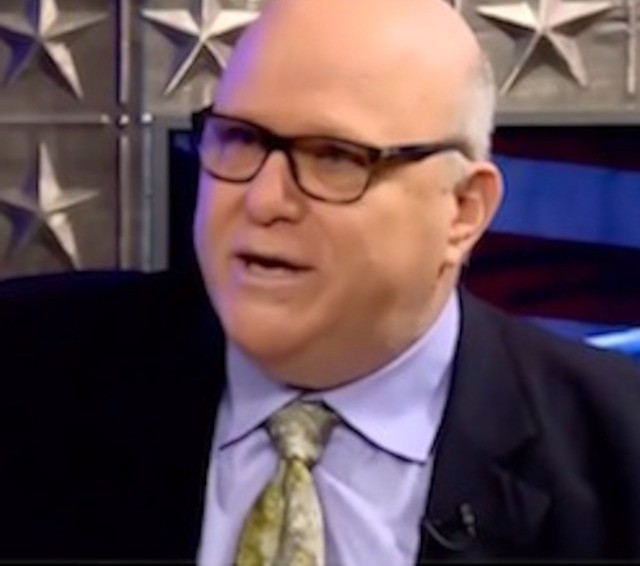With Bolton’s Israel trip, a dramatic change
What a difference two years makes. In December 2016, President Barack Obama and Secretary of State John Kerry abandoned the Jewish State by directing UN Ambassador Samantha Power to abstain rather than veto an anti-Israel resolution in the UN Security Council.
Twenty-five months later, national security advisor John Bolton began a Middle East trip in Israel to assure the Jewish state and Gulf allies of the U.S. that the withdrawal from Syria would not be like Obama’s 2011 abandonment of Iraq, which led to ISIS forces taking much of the country. Bolton told reporters on his plane to Ben-Gurion Airport that the date of the American withdrawal would be determined by the destruction of ISIS and other facts on the ground.
Bolton also told reporters that President Trump would not abandon the Kurds to Turkey, and would “make sure that the defense of Israel and our other friends in the region is absolutely assured.” And he would “take care of those who have fought with us against ISIS and other terrorist groups.”
Even after achieving the conditions for leaving, Bolton said the U.S. would maintain a presence in southeastern Syria, most likely to prevent Iran from gaining a land bridge for Tehran to run fighters and weapons through it.
Before meeting with Netanyahu on Sunday, Bolton sent a message to the world with a visit to the Old City of Jerusalem, the Kotel and the tunnels beneath it. What made the visit significant is that joining Bolton’s tour were senior Israel officials: National Security Adviser Meir Ben-Shabbat, and Israel’s ambassador to the US, Ron Dermer. Usually, Old City visits are made without Israeli officials as not to upset the Palestinians and other opponents of the Jewish State.
After their first meeting, the Prime Minister and Trump’s national security advisor had the traditional between-meetings press conference.
Netanyahu started with the usual pleasantries, followed by a review of Trump’s pro-Israel policies. He thanked Bolton for Trump’s recognition of Jerusalem as Israel’s capital, moving the U.S. embassy to Jerusalem, allowing Israel to defend itself from the Iranian presence in Syria and defending Israel at the United Nations. He finished with an official request that America recognize the Israeli annexation of the Golan Heights:
“If weather permits we’ll go up to the Golan Heights … The Golan Heights is tremendously important for our security. And I think that when you’re there you’ll be able to understand perfectly why we’ll never leave the Golan Heights and why it’s important for that all countries recognize Israel’s sovereignty over the Golan Heights, I’ve discussed this with the President and I hope I have a chance to show it directly to you tomorrow on our visit.”
Bolton responded with remarks presented by many previous administrations, but with a twist. Instead of empty words about friendship and unbreakable bonds, Bolton explained why friendship with Israel was necessary for the security of the US, and ended with a warning to those who would doubt the alliance.
“Jerusalem is such a fascinating city, such a historic city and is now known among its other attributes as the home of the American Embassy to Israel. As you said, what a remarkable achievement that you and President Trump worked out to actually bring the embassy to the capital of Israel; it was one of President Trump’s campaign promises and he was determined to make it a reality and work so closely with you to achieve it.
“I think, in fact, Prime Minister, under your leadership with President Trump, we now have the best US-Israel relationship in our history. And on our side, we’re certainly determined to continue that, because the leadership that’s necessary and what is increasingly a very critical time for security here in the Middle East and for us around the world, requires that strong bond and strong leadership that you and the President provide.
“We’ve got the continuing threat of Iran’s quest for deliverable nuclear weapons. And despite getting out of the Iran nuclear deal despite the sanctions, we have little doubt that Iran’s leadership is still strategically committed to achieving deliverable nuclear weapons. The United States and Israel are strategically committed to making sure that doesn’t happen.”
Bolton continued with a discussion of Syria, raising many of the same points he had told reporters on the plane.
He closed with backing Israel’s right to self-defense, another statement we heard from the previous administration. The difference, however, was that Bolton’s words weren’t followed by a “but.” Two years ago, the right to self-defense would be qualified with a warning not to defend itself too well, or with moral equivalency between Israel’s self-defense and terrorist acts.
Instead, Bolton’s statement was unequivocal.
“For the United States, a sovereign nation’s ability to defend itself is the ultimate mark of sovereignty. And President Trump has said repeatedly that he backs Israel’s right to self-defense. He says it proudly and unequivocally. I would just say to any nation, whether in this region or not in this region, that has any doubt about America’s support for Israel’s self-defense — they better think about it again.”
So much can happen in two years.
Whether one agrees or disagrees with President Trump’s policies, one cannot dispute the fact that this president has executed a dramatic reversal of the Israel policies of the previous administration. This reversal can be substantiated with the actions Netanyahu pointed out — Jerusalem, the Iran deal, and the UN — but the most significant substantiation was that lack of a qualifying “but” to Israel’s right to self-defense.
The United States now recognizes Israel as an ally with a need to defend itself, rather than a vassal state that can only protect itself at the whims of a president who believes it is always wrong.

 52.0°,
Overcast
52.0°,
Overcast 




